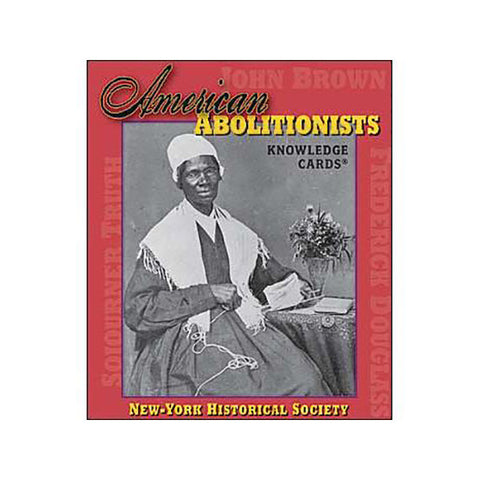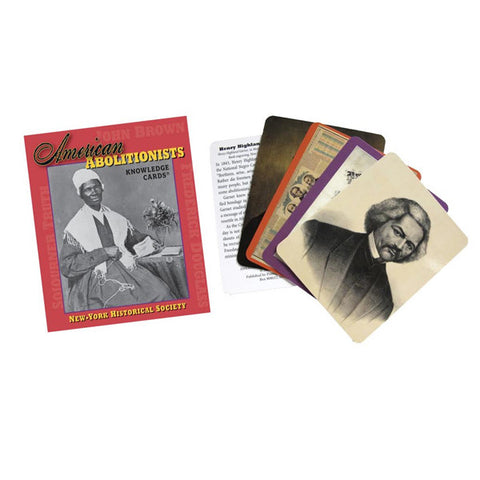Long before the United States of America was divided by the bloody rift of the Civil War, the evils of slavery drove abolitionists to take up arms against that most pernicious institution. While the former slave Frederick Douglass wrote and lectured and advised presidents, his friend John Brown delivered his message with bullets. The forty-eight cards in this deck treat the history of abolitionism biographically and thematically. Half the cards provide close-ups of women and men who worked to free America’s slaves--writers, editors, activists, underground railway conductors, and leaders of slave rebellions. The other half include detailed essays on such subjects as the Amistad mutiny, abolitionist newspapers, the underground railroad, and black women’s role in the abolitionist movement. 48 fact-filled cards per deck Size: 3¼ x 4".
From February 11, 2022, Our Composite Nation: Frederick Douglass' America shines a light on the late 1860s—at a moment of great hope for the promise of equality under the law. The famed orator and once-enslaved abolitionist Frederick Douglass took his “Our Composite Nation” speech on the road to argue for a plural American democracy. The mission of this new nation, he declared, was to provide the world “a composite, perfect illustration of the unity of the human family.” For what was the U.S., he said, but “the most conspicuous example of composite nationality in the world?” This special installation features artifacts, images, and a theatrical design that bring Douglass’ compelling speech to life and explores his vision of freedom, citizenship, and equal rights that remains urgently relevant today, as a hopeful plea for America to live up to its founding ideals.view Sept 7 through March 3, 2019, Black Citizenship in the Age of Jim Crow, tells of the central role played by African Americans in advocating for their rights. Marking the 150th anniversary of the ratification of the Fourteenth Amendment, the exhibition is organized chronologically from the end of the Civil War to the end of World War I. The voices of citizens responding to the challenge of citizenship are as relevant today as when first spoken, whether that message was delivered in the 19th century or the 21st.



